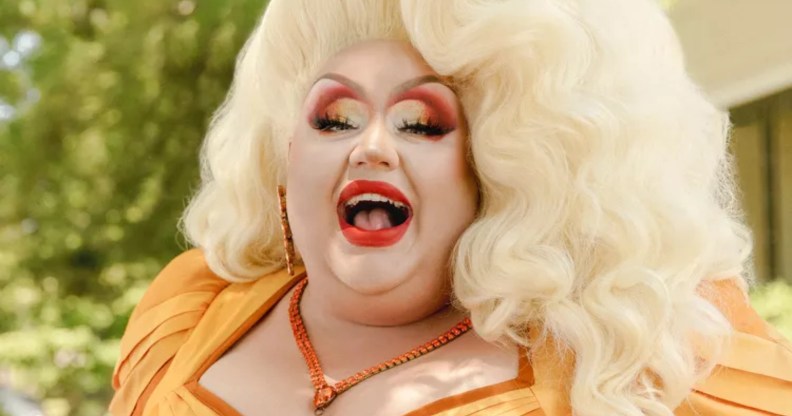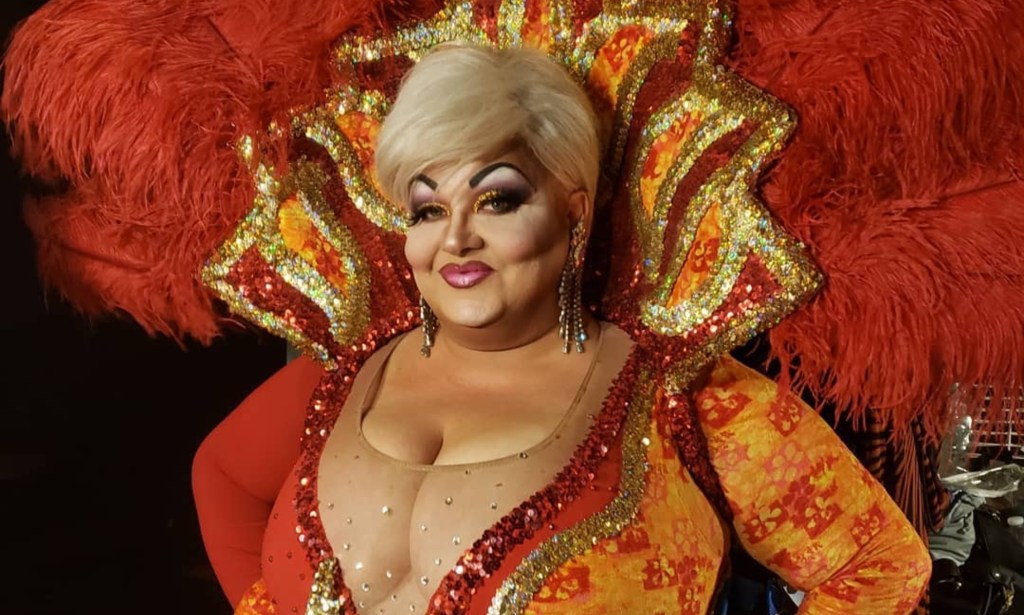Drag Race star Eureka O’Hara speaks out on Tennessee drag ban: ‘I got so emotional that I cried’

Eureka O’Hara slams Tennessee drag ban. (Johnnie Ingram)
Drag Race icon Eureka O’Hara has condemned anti-LGBTQ+ hostility in her home state of Tennessee, declaring that the proposed anti-drag legislation has “broken her heart”.
Drag queen Eureka O’Hara has slammed Senate Bill 3, a proposed drag ban signed off by Tennessee Republican governor Bill Lee, which aims to ban “adult cabaret performances” within 300 metres of public schools, parks or places of worship, and encompasses “male or female impersonators who provide entertainment that appeals to prurient interest”.
The Drag Race icon joined the growing number of queens speaking out about rising anti-LGBTQ+ state legislation in the US in a thought-provoking essay for Time, where she discussed how she first discovered the art of drag, connecting with her drag mother and the impact of positive representation.
The Tennessee native wrote that the proposed ban on public drag in her home state “breaks my heart so much”, recalling how she “got so emotional that I cried” when she first heard that Bill Lee was signing the bill.
The legislation, which was set to come into force on 1 April, has been suspended until 26 May by district judge, Thomas Parker, for being too vague, and has been widely denounced by politicians, drag queens and celebrities.
“Politicians like Lee are so busy demonising and sexualising our existence that they also instil fear in people [who] are actually trying to figure themselves out,” she continued. “It’s a scare tactic that is meant to erase us, not keep us safe.”
The drag queen, who rose to prominence in seasons nine and 10 of RuPaul’s Drag Race, and came out as a trans woman in December, said that seeing positive LGBTQ+ representation in public spaces validated her identity; a feeling that she now wants to pass on to the next generation.

“It’s so important to feel seen and supported when you’re young and coming to terms with yourself,” she continued. “I speak from personal experience: I was so insecure with who I was because I just didn’t have anyone like me growing up.”
Eureka described how she felt “traumatised” by her existence during her childhood after being told in church that she would “burn in hell”, and being treated as if something was “wrong” with her by family.
“That trauma stuck with me,” she added. “I didn’t really know what it was then, but I felt I could have avoided it if there would have been more visibility or more people I could have looked up to.”
Eureka also reflected on their first Pride event in Virginia where there was “outdoor drag”, describing how it was immensely “celebratory”. She also emphasised that these spaces are vital for queer youth, where they can “safely and legally experience the therapy and the beauty of seeing their community thriving in all their glory”.
It was this early representation that changed Eureka’s life. Reminiscing about attending Tennessee gay bar New Beginnings when she was 16, the drag queen recalled seeing her future drag mother, Jacqueline St James, on stage for the very first time.

“This big, beautiful woman with a high, brown ponytail, so much makeup, and big boobs walks out,” she recalled. “As soon as the light hit her, I was just like, ‘What is that?’ There was something so powerful about the confidence she had: the beauty and glamour.”
Eureka went on to describe how Jacqueline, who later came out as trans and took the queen under her wing, made her feel “so seen and so safe to be myself”, noting that “drag queens, after all, have a way of sticking together“.
Eureka and Jacqueline previously opened up about their strong relationship on the podcast Don’t Tell My Mother! with Nikki Levy in 2021. Eureka said Jacqueline made her “feel like she belongs” when she had been “beaten down by society and made to feel by [her] peers that [she didn’t] belong”.
It was “an expression and a statement of our existence,” she added.
“In spite of the old morality codes that tell us what we can’t be, and the hardships that we have gone through for self-determination, we can still celebrate what makes us beautiful.”
How did this story make you feel?

